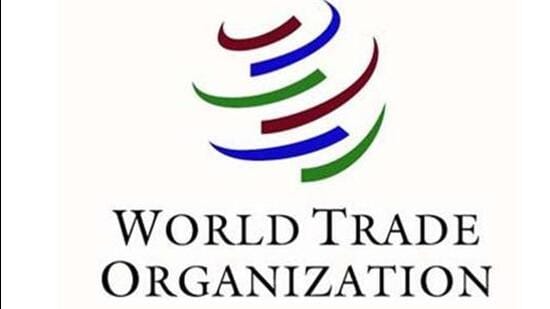Amend the Patents Act to execute TRIPS waiver
These amendments to the Patents Act will have the following advantages. First, it will demonstrate India’s resolve to help the developing world fight the pandemic. Second, it will cement India’s position as a leader of the developing world
The recently concluded 12th ministerial meeting of the World Trade Organization (WTO) saw the adoption of a decision that waives certain provisions of the Trade-Related Aspects of Intellectual Property Rights agreement (2022 TRIPS waiver) to expedite the production and supply of Covid-19 vaccines.

This waiver — far from the one India and South Africa proposed — is restricted to Covid-19 vaccines and the underlying technology but does not cover diagnostics and therapeutics. Furthermore, it applies only to patents, not other intellectual property (IP) rights. Effectively, the decision waives the obligation imposed by Article 31(f) of the TRIPS agreement, which requires countries to ensure that products produced under a compulsory licence (CL) are predominantly for the domestic market.
Thus, eligible members, ie, all developing countries barring China, are now free to export Covid-19 vaccines to any developing country by producing them without the patent holder’s authorisation, such as by issuing a CL (unauthorised use). But bizarrely, the developed countries that have been at the forefront of developing and manufacturing Covid-19 vaccines cannot export these vaccines to developing countries under this waiver.
Notwithstanding the shallowness of the TRIPS waiver, the ball is now in the court of the developing countries, especially the original propagators of the waiver, to use the decision by incorporating it within their respective legal regimes. Specifically speaking about India, while the TRIPS waiver talks about a plethora of mechanisms for its implementation (such as issuing an executive order), amending relevant Indian laws such as the Patents Act, 1970, will give a robust foundation to the waiver. There is precedence for this. Parliament inserted Section 92A (which prescribes the issuance of CL for exporting patented pharmaceutical products to countries with insufficient or no manufacturing capacity) within the Patents Act in 2005 to implement the 2003 TRIPS waiver. Similarly, to implement the 2022 TRIPS waiver, separate provisions allowing the production of Covid-19 vaccines without the patent holder’s permission, like the issuance of CL, should be inserted within the Patents Act. These provisions, complementing the existing flexibilities in the Patents Act, can be divided into two parts.
First, although India has already vaccinated a large part of its population, it should include a provision, with all the relevant details, that allows for the unauthorised use of Covid-19 vaccine patents for domestic use following the 2022 TRIPS waiver. Second, and most importantly, India should introduce a provision, allowing the exportation of Covid-19 vaccines produced under unauthorised use, such as by issuing a CL, to all developing countries under the 2022 TRIPS waiver. It is of utmost importance for India to live up to its reputation as the pharmacy of the world. Section 92A cannot be used for the same, because it is restricted to countries that lack manufacturing capability, whereas the 2022 TRIPS waiver covers all developing countries irrespective of their manufacturing capability unless a developing country opts out of the system.
These amendments to the Patents Act will have the following advantages. First, it will demonstrate India’s resolve to help the developing world fight the pandemic. Second, it will cement India’s position as a leader of the developing world. Third, it will give India the moral legitimacy to push developed countries into including diagnostics and therapeutics in the waiver, as mandated by paragraph 7 of the 2022 TRIPS waiver. Although India has championed the TRIPS waiver since 2020, it barely used the flexibilities in the Patents Act domestically to overcome IP hindrances during the pandemic. Walking down the same path will mean abandoning the TRIPS waiver.
Prabhash Ranjan is a professor at the Jindal Global Law School. Praharsh Gour is a researcher working on the interplay between Trade, IP, and Public Health The views expressed are personal
All Access.
One Subscription.
Get 360° coverage—from daily headlines
to 100 year archives.



HT App & Website






